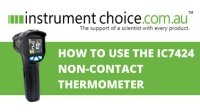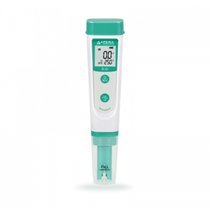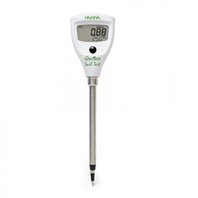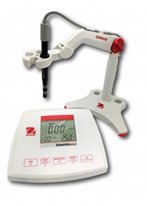What Is an EC Meter?
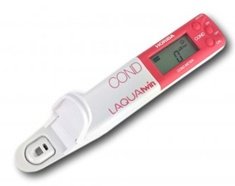
EC meters are relatively simple tools that perform sophisticated measurements resulting in a wealth of information about the nutrient content of soils and liquid samples.
This article focuses attention on answering the question, “What is an EC meter?” To do this, we investigate:
- “What is EC?”
- “Why measure EC?”; and
- Provide some examples of EC measurement applications along with some example products.
What is EC?
EC stands for Electrical Conductivity (often abbreviated to simply Conductivity). Electrical Conductivity is the measure of the concentration of ions present within a sample. It is calculated by the ability of a substance to transmit an electrical current over a defined area.
Distilled water is a poor conductor of electricity - it contains no ions. Water with salts and other dissolved inorganic chemicals will have a higher ionic concentration, and therefore, higher conductivity level.
Why Measure EC?
Conductivity is a valuable and commonly measured water quality parameter. Incidentally, Siemens (S) (I.e. Milli Siemens per centimetre mS/cm or Micro Siemens per cm μS/cm) is the unit used when measuring electrical Conductivity.
It’s important to know that there is a strong correlation between Conductivity, TDS and salinity. And because Conductivity is easier to measure than TDS and salinity, many devices first determine the Conductivity of a sample then employ an algorithm to estimate salinity and TDS concentrations.
EC Meter Applications
The vital information yielded by EC Meters can then be applied in a host of agricultural, civic and commercial applications such as:
- Cropping and pastoral: Electrical conductivity measurements can indicate the salinity, dissolved nutrient, and dissolved solid levels present in the soil. This information can help you make good decisions about irrigation and fertilising.
- Aquariums and aquaculture: A conductivity meter makes it straightforward to monitor water salinity and levels of total dissolved solids. You can convert conductivity readings to total dissolved solids (TDS) or salinity concentrations manually or use a conductivity meter that has this feature built-in. These readings can then be used to maintain a healthy environment for your farmed species.
- Water Treatment: Conductivity data plays an increasingly significant role in managing environmental water quality. Keeping conductivity and salinity measurements within the acceptable ranges is key to maintaining healthy and sustainable ecosystems in our oceans and waterways, particularly where wastewater is discharged.
- Boiler Maintenance: Feedwater within boilers contains impurities, and these can eventually cause issues. Any build-up of contaminants will impact the efficiency and safety of the boiler. A conductivity meter enables you to monitor boiler water impurity levels and warn about the likelihood of boiler blowdown.
- Salt Pool Maintenance: A conductivity meter can help you check your swimming pool or spa’s chemical balance. A conductivity meter (with an automatic salt conversion function or converting the conductivity results manually) will indicate when to perform corrective actions to ensure your pool water is safe.
Examples of EC Meters
Check out the cross-section of conductivity meters (below) that your Instrument Choice team has assembled – they represent the variety of instruments available in Instrument Choice’s online store.
EC20 Value Pocket Conductivity Tester Kit
|
Direct Soil EC/temp Tester
|
Horiba Laquatwin Conductivity Meter
|
Starter 3100C Conductivity Bench Meter
|
Conclusion
What is an EC meter? An essential type of instrument for the fast and accurate determination of the nutrient content within a solution. The wide variety of designs suit a host of vital agricultural, environmental management and commercial applications.
Want to browse more examples of conductivity meters? Search the Instrument Choice online store. You’ll find an extensive range of quality, cost-effective units that our scientists have hand-selected.
If you assistance selecting the best conductivity meter for your needs, contact an Instrument Choice Scientist on 1300 737 871 or email [email protected].
Also interesting
The Instrument Choice Team of Scientists regularly reviews new and popular products, so you can make more informed decisions when searching for the perfect scientific instrument for your application.
This edition reviews the Leica DISTO D810 Laser Distance Meter, a professional laser distance meter that offers a selection of exceptional features and some revolutionary functions that support quick and intuitive operations.
Get our scientists’ review of the Leica DISTO D810 Laser Distance Meter
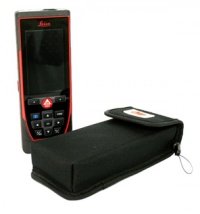
Non-Contact Thermometers offer an affordable, fast and easy way to measure the temperature of surfaces. The IC7424 offers an assortment of user-friendly functions and easy-to-adjust settings to suit all your measurement needs.
